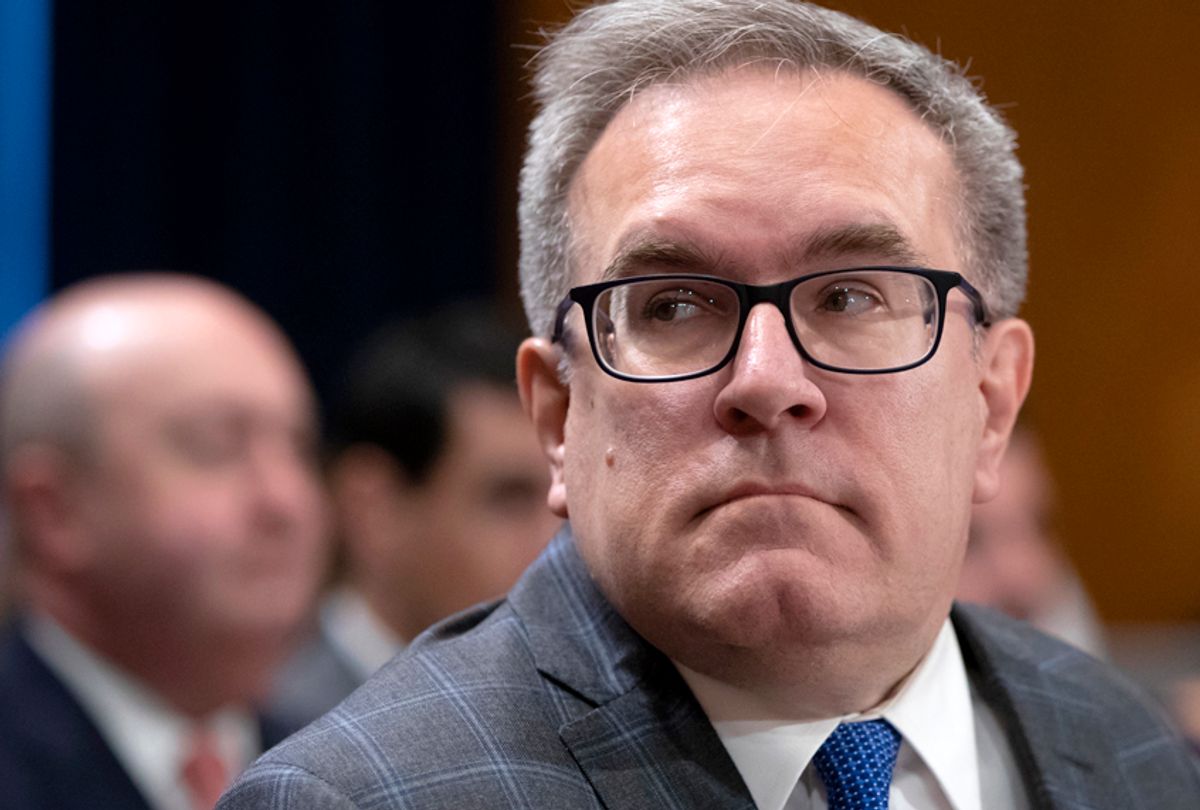To avoid dealing directly with U.S. policies affecting climate change, Andrew Wheeler, a coal executive who was confirmed last month as the head of the Environmental Protection Agency, told CBS News this week that clean global water is a bigger priority.
That was an immediate head-scratcher in an administration that seems not to have made clean water a priority to this point.
Perhaps it was a clever way to change the question, though the result struck me as a differentiation without a big difference: Climate change is only going to worsen access to clean water and push mass migration from places on the Earth where water is drying up.
Wheeler told CBS News’ Major Garrett that while the administration indeed is addressing climate change — a topic worth a lot of debate itself —thousands are dying every day from unclean drinking water. Wheeler was to announce the EPA’s global clean water push in a speech yesterday.
Indeed, just reading The New York Times yesterday, there were articles about pending water shortages across the most populous areas of southern Britain and a voluntary shared reduction among seven Western U.S. states to water from drying reservoirs. Wheeler also asserted that the government is actively working with Flint, Mich., where waters were poisoned by lead, and a dozen other cities.
Actually, despite the strange, if expected, calisthenics to avoid an embrace of climate change as an issue, it was somehow encouraging to hear a Trump appointee pledging to keep water clean and clean water available.
While humans “certainly contribute” to climate change, Wheeler said, the lack of safe drinking water across the world as its most pressing environmental issue instead. “We’re doing much better than most westernized countries on reducing their CO2 emissions, but what we need to do is make sure that the whole world is focused on the people who are dying today, the thousand children that die every day from lack of drinking water.”
Surely, access to clean water and efforts to lower climate temperatures a bit are linked. Study after study suggests that without lowering greenhouse gas emissions substantially, we will be seeing more and more areas of the planet turn hostile to humans, eliminating arable lands, water sources and unrelenting heat. This, in turn, will trigger mass refugee issues that no one seems prepared to handle, and continuing woes for governments everywhere.
Already, there is plenty of evidence of stronger storms as a byproduct of warming seas and changing weather patterns. This week’s cyclone in East Africa tore up enough area to leave more than half of big populated areas in three nations unsuitable for living.
Multiple scientific assessments, including from the Trump administration, have found that climate change is already harming Americans through hotter and longer-lasting heat waves, heavy precipitation events, and other impacts. And polling earlier this year found that about 7 in 10 Americans say the issue of global warming is either “extremely,” “very,” or “somewhat” important to them personally — while 46% said they already personally experienced the effects of global warming.
Still, because Trump wants to disbelieve climate change as real, Wheeler must find himself in a bit of a vise. On the one side, his assigned job is deregulation for business from environmental rules; on the other, his recognition that clean water is under pressure will require more regulation and international aid of the sort that Trump opposes.
Again, over the course of the Trump administration, the environmental rollbacks have included several efforts that touch on clean water. Waving rules for business that otherwise had prevented dumping industrial waste in wetlands, for example, affects clean water sources; likewise, the serious work to add drilling efforts for a variety of natural fuels, including through fracking, is an odd way for the EPA to put clean water at the top of its goals.
Let’s hope the effort to address clean water is real.


Shares